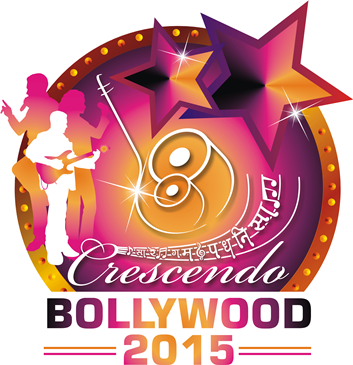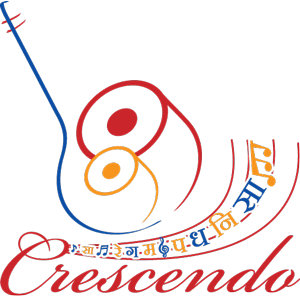| Krishnarao Phulambrikar 'Krishnadas' | ||
|---|---|---|
| Gharana | Khayal - Agra |  |
| Speciality | Vocal | |
| Guru |
||
| Born | Please login to view this information | |
| Died | Please login to view this information | |
| More information at : | Please login to view this information | |
| Short Bio : | Information submitted below has been put here only for educational purpose and has been submitted by community users and users of the site. SwarGanga has not verified any copyright and takes no responsibility whatsoever. If you feel that you own copyright to the material below, please let us know and we will with you on the same. Master Krishnarao Phulambrikar was the most celebrated vocalist, composer in the early decades in Maharashtra. Born in Devachi Alandi, near Pune, Maharashtra, he was a named as Krishna by his parents, Ganesh and Mathura Phulambrikar. Being a leading disciple of ‘DevaGandharva’ Pandit Bhaskarbua Bakhale, he imbibed the nuances of Gwalior, Agra and Jaipur Gharana. Before Pt. Bakhale, he learnt under Sawai Gandharva and Ustad Nissar Hussain Khan for short time, when started his career as a child prodigy stage actor-singer in Marathi music drama ‘Sant Sakhu’ in Natyakalapravartak Mandali. He was given title “Master Krishna” by leading politician intellect in Maharashtra N C Kelkar (a disciple of Lokmanya Tilak) in 1909. After this, he got extensive training under Pt. Bakhale from 1911 till Bakhale’s death in 1922. With his unique intelligence and voice quality, he evolved with his own distinctive style of singing. He also had acquaintance with Vazebua, Alladiya Khan and Alladiya Khan’s maternal uncle Ustad Daulat Khan from whom he got many rare Ragas and Bandishes. In 1933, Shankaracharya Dr Kurtakoti titled him with “Sangeet Kalanidhi”. He performed first full-fledged concert at the age of 14 and was at his best as vocalist till 1950’s. He performed ravishingly in whole India – from Lahore, Karachi, Jalandhar, Kashmir to Mysore, Hyderabad. He was sent to China as a cultural delegate by Govt. of India in 1953. Unfortunately he had a facial paralysis in 1968’s which ended his career as a singer. He was also well-versed in Jod-Ragas and created many new Ragas such as Tilak Kedar (Tilak Kamod plus Kedar), Mangal Todi (Todi with both Madhyam), ShivaKalyan (Kalyan plus Shivaranjani’, DeviKalyan (Durga and Abhogi), Bilwa Bibhas (Bilawal plus Bibhas), Jaunkali (Jaunpuri & Ramkali). He composed several beautiful Bandishes, some with penname ‘Krishnadas’. Along with Khayal, he was well-versed in Thumri-Dadra, Natyageet, Bhajan, etc. His 78 RPM record of Raga Jaunpuri was so popular, he was known as “Baje Zanan Master Krishna” in 1920’s. His Thumri was distinct from Banaras style & he carved his own style & that was known as “Khayali Thumri” or “Madhyamgram Thumri”, full with Raga-bheda & murchchanas. His Thumri’s such as Tori Binati, Dekho Mori Churiya, Shamamohan Pyare, Khelat Hai Giridhari, Ho Sham Bajaye tore gharame muraliya etc. in Bhairavi were exquisite and so, he was also called as “Bhairavi Ka Badshah” in Hyderabad state. He was the one who carved a special cast of Marathi Abhang style giving framework of Raga, which was later followed by many in Maharashtra. He joined Bal Gandharva’s musical theatre company “Gandharva Sangeet Natak Mandali” and acted as female roles & sung in many dramas during 1915 to 1933. He also contributed in shaping Marathi NatyaSangeet in the decades of 1920’s to 1940’s with scoring music to Bal Gandharvas dramas such as Menaka, Savitri, Amrita Saidhhi, Kanhopatra, Asha Nirasha, Nand Kumar, Vidhi Likhit, etc and Jyotsna Bhole’s plays such as Kulavadhu, Ek Hota Mhatara, Kone Eke Kali, Bhagyoday. From 1935 to 1962, Master Krishnarao was a popular music director in Marathi and Hindi Film industry and gave music to 15 films. He was music composer in the famous Prabhat Film Company and scored music for films such as Dharmatma, Amarjyoti, Wahan, GopalKrishna, Manoos/Admi, Shejari/Padosi, Lakharani. After Prabhat Film Company, he also gave music to films such as Vasantasena, Bhakticha Mala/Mali (in which he had lead role of Sant Sawta Mali), Meri Amanat, Sant Ramdas, Tai Telin, Kichak Vadh, Vithu Majha Lekurwala. He established his own school in scoring music to films and later music directors such as Vasant Desai, Sudhir Phadke, P L Deshpande, Snehal Bhatkar, Gajananrao Watve, etc were his followers. His popular Bandishes are Ratiya Mein Jagi (nayaki Kanada), Lalan Tumabina Kaun (Kaunsi Kanada), Rang Rang Mukhape (Adana), Chahu Barasan Lagi (Bhup), Kahu Ki Reet (Malkauns), Hori Khelat Bahar (Patdeep), E Ma Badal Aye (Malhar), Mai Ri Aaj (Hindol Bahar), Mai Pritam Karo Dulhan Pe (ShivKalyan), etc. He published many traditional and his won Bandishes in 7 volumes of a book series “Raga Samgraha”. He was also credited to publish book with notations, such as RashtraSangeet, ShishuSangeet, AmarSangeet, MohanMaal, NatyaGeet Notation, ChitraGeet notation, etc. His autobiography “Bola Amrita Bola” was published in 1985 after his death. Master Krishnarao was a staunch nationalist and used to sing “Vande Mataram” with his own tune in Raga Zinzoti with great pride. He boycotted British Radio for 9 years when he was prevented in singing Vande Mataram. He dedicated his energy to make Vande Mataram as India’s national anthem from 1932 to 1948, but his efforts were not successful and Vande Mataram was only given status of National song, but not national anthem of India. Apart from being very busy performer, he trained a few disciples such as Ram Marathe, Bapurao Ashtekar, Manikrao Thakurdas, Anjanibai Kalgutkar, Suhas Datar, Mohan Karve, Rangnath Karkare, Shivram Gadgil, Narayan Phulambrikar, Sudhakar Joshi, Haribhau Deshpande (Organ player), Dr Pabalkar (Singer & Harmonium player, but doctor by profession) and his daughter Veena Chitko. Chota Gandharva, Dinkar Amembal, Madhusudan Kanetkar were greatly influenced by Master Krishna’s style. He was director of Bharat Gayan Samaj (institute founded by Bhaskarbua) for long time. His 60th anniversary function with music performances of many stalwarts for 9 nights is remembered as an important music event in Pune. He was awarded with Vishnudas Bhave gold medal for contribution in theatre by Maharashtra Govt. (1969), Padmabhushan (1971), Sangeet Natak Akademy fellowship (1972). He died in Pune in 1974. - Chaitanya Kunte |
|
| Disciple tree | Please login to view this information | |
| Bandishes composed by this artist : |
You might also like the following videos we randomly search for you from youtubePlease wait while we randomly search some videos |



